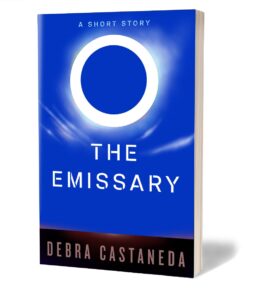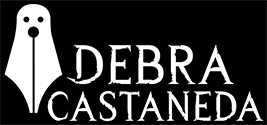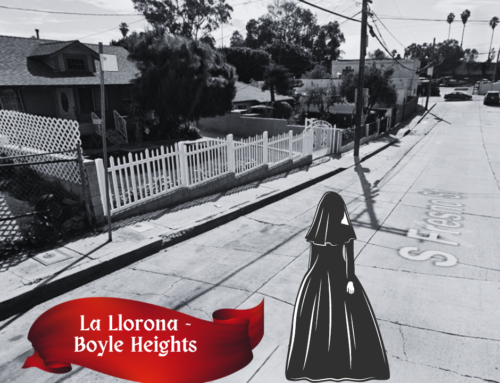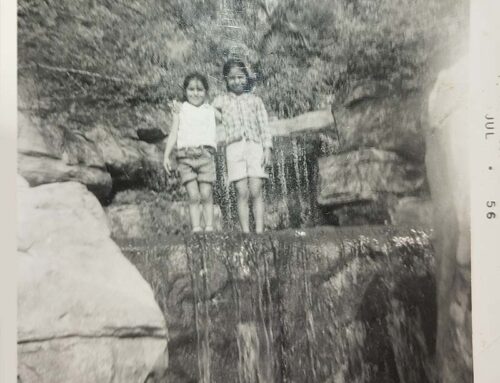There is a character in my urban fantasy novella, The Monsters of Chavez Ravine, nicknamed Ripper.
The residents of the old neighborhoods of Palo Verde, Bishop, and La Loma were big on nicknames. In photographer Don Normark’s stunning book, Chavez Ravine 1949: A Los Angeles Story, he includes two pages of nicknames.
There is one nickname that makes my heart race.
Ripper.
Growing up, I’d never heard his name mentioned. Not once. But then my mother came to visit when my second daughter was born. She went from being lucid to seeing things that were not there. I called 911. While I waited for the ambulance to arrive, she kept mentioning the name Ripper. After we’d processed the diagnosis of early-onset Alzheimer’s, I asked my father about this mysterious person.
Ripper was my mother’s first husband.
My father did not want to talk about Ripper. He’d only say my mother had married him when she was very young, and the relationship didn’t last long.
I didn’t have to ask why mother had kept this a secret from me. She had old-fashioned, old-school Catholic feelings on divorce and no doubt didn’t want me to think any less of her because she was a divorced woman.
This former marriage also explained my mother’s outsized dramatic reaction to a certain boyfriend of mine. She probably thought I’d make the same mistake. Of course, an honest conversation about the perils of forming too-early attachments might have been useful, but she portrayed herself as an obedient young woman who did not climb out the window to steal away with her young man.
When my mother died, her childhood friend attended her funeral. Mary had also lived in the Palo Verde neighborhood of Chavez Ravine, so I asked her about him.
If only I had a camera to capture her expression. Her eyebrows shot up. Her jaw dropped. One hand fluttered to her heart. “She didn’t tell you she’d been married before!” she said.
No. No. And definitely not.
Mary told me what she could remember about the relationship, which lasted several years. She called him the love of my mother’s life, which was a rather shocking thing to say with my father standing not far away.
I got the gist of things, even though Mary was short on specifics. Ripper lived a few doors down from my mother. My grandmother wasn’t a big fan and disapproved of him, but then, my grandmother was a proud woman who thought her family was better than some others around Palo Verde, according to some stories I heard. Mary said my mother married him against her mother’s wishes. This probably doomed things from the start. Grandma Kika was a tough lady with strong opinions, accustomed to getting her way. My mother and my aunts revered her and usually did what she asked. My grandmother approved and loved her two other sons-in-law, both from Chavez Ravine.
Ripper no doubt found himself the odd man out. I can’t imagine my mother holding out against that kind of maternal pressure. Or maybe the relationship between my mother and Ripper didn’t work out for all the usual reasons a marriage can fail. Or a combination of things.
I had many years to fill in the blanks about Ripper.
With a nickname like that, I can be excused for thinking he’d been pretty good with a knife. And that he’d been one of those good-looking bad boys in his youth. I don’t know if the Ripper named in Normark’s book is the same man my mother married, but how many Rippers could there be?
Later, I was to learn his actual name and that he died within three months of my mother. Coincidence, but somehow, it felt strangely significant. I know it would have upset my father if he’d lived long enough to find that out. Not that I would have told him. I never mentioned Ripper again.
Ripper, my imagined version of him, first appeared in my short story set in Chavez Ravine called The Emissary.

You can read it for free, here. He makes another appearance in The Monsters of Chavez Ravine, and I must admit, next to the protagonist Trini Duran, he’s one of my favorite characters.
There’s a lesson somewhere in all of this about family secrets.
They don’t stay secret forever. And if there’s a writer in the family, that secret is going to end up in a book.




Leave A Comment